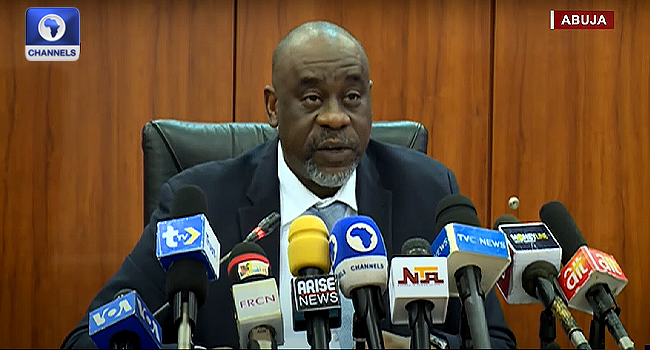The Central Bank of Nigeria (CBN) has announced its intervention in the foreign exchange market, aiming to address the current volatility. According to the acting CBN Governor, Folashodun Shonubi, the bank has been actively intervening and will continue to do so to bring the markets to more stable levels.
After the conclusion of the bank’s Monetary Policy Committee (MPC) meeting in Abuja on Tuesday, Shonubi addressed the issue of volatility in the foreign exchange market. He acknowledged that the current volatile times were expected, but he expressed confidence that they would moderate sooner rather than later.
During the meeting, the MPC raised the Monetary Policy Rate (MPR), which measures interest rates, from 18.5 percent to 18.75%. This move comes after President Bola Tinubu’s inauguration on May 29, 2023, during which he emphasized the need for a unified exchange rate and a more efficient monetary policy to stimulate meaningful investment in the real economy.
In line with this, the CBN had taken a significant step on June 14, 2023, by abolishing the segmentation of the forex market into different windows. Deposit Money Banks were instructed to freely float the naira against the dollar and other international currencies, allowing buyers and sellers of foreign currency in the official FX market to quote their preferred rates. This move aimed to create a more efficient and flexible market, deviating from the previous practice of CBN dictating rates.
Clarifying the CBN’s stance, the acting CBN chief stated that the goal is not to unify any rate but rather to encourage the market to become more efficient and effective. He acknowledged the market’s need to find its level and adapt to the reality of pent-up demand, which may exceed the current supply. As the market eases and demand is met, a more stable and efficient market is expected to emerge.
Shonubi emphasized the changing dynamics of pricing in the market and proposed that the term “Investors and Exporters (I&E) window” be discontinued as it now encompasses a broader range of participants. He assured that, in time, the volatility observed would normalize as the market becomes more efficient.
The acting governor underscored the central bank’s role in maintaining stability in the market. As the market oscillates around a certain level, the CBN will intervene as needed by either buying or selling, with the aim of keeping the market fairly stable.
The CBN’s intervention comes as part of broader efforts to enhance Nigeria’s economic landscape, stimulate investments, and promote a more efficient and dynamic foreign exchange market. As stakeholders closely monitor the evolving situation, the CBN’s approach is expected to play a crucial role in moderating volatility and fostering stability in the forex market.










